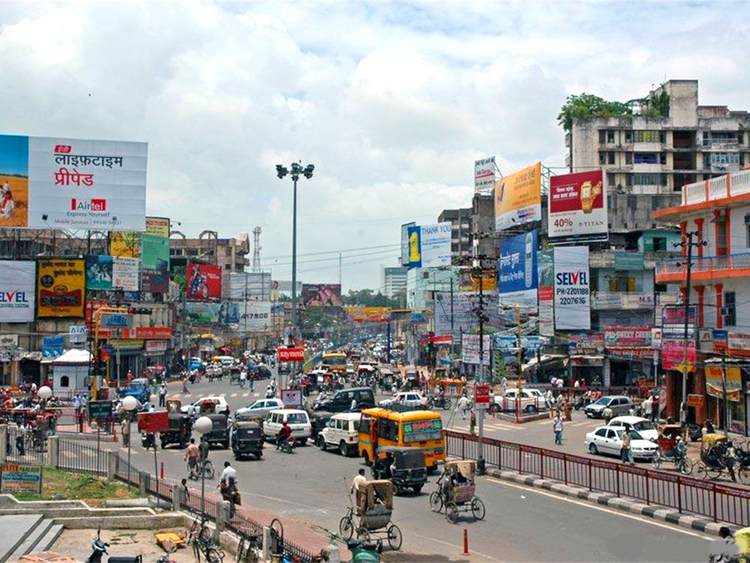India: 500,000 apply for 166 vacancies as cleaners, gardeners
Lata Rani, Correspondent Published: June 10, 2019 17:12
Many applying for the posts in Bihar are post-graduates
 Bihar Image Credit: Gulf News archives
Bihar Image Credit: Gulf News archives
Patna: More than 500,000 candidates, many of them highly qualified, have applied for 166 vacancies for Grade 4 employees, indicating the level of growing unemployment in India.
The positions advertised by the Bihar legislative assembly secretariat cover a variety of posts that include drivers, library attendants, office attendants, watchmen, cleaners and gardeners.
Salary for these positions start at Rs18,000 (Dh950) per month. Anyone who has passed Grade 10 school examination is eligible to apply. Strangely, many applicants were those who had passed the graduation or post-graduation examinations.
Hundreds of such applicants appeared before the state assembly on Monday for scrutiny of their papers by a private company hired by the secretariat. Around 2,000 applicants were being called every day for verifications of their documents.
“I am jobless despite a graduation degree in hand and somehow surviving by working as daily-wage driver. I have applied for the position hoping to get a job,” said Sansar Kumar, a 27-year-old youth who applied for the post of driver. The government advertisement says anyone in the age-group of 18 to 37 can apply for these posts and this has led to a huge rush of applicants.
Data released by the labour ministry in May confirmed unemployment in the country was 6.1 per cent of the total labour force during 2017-18, which is the highest in 45 years. The data was released on the day Narendra Modi 2.0 cabinet took charge on May 30.
In April last year, more than 25 million people had applied for 90,000 vacancies advertised by the Indian Railways. Here, too, the vacancies advertised were for hiring engine drivers, signalling staff, welders, porters, track maintenance workers, electricians and mechanics — yet quite many highly qualified jobless youths applied for those jobs.
Prior to this, more than 500,000 youths had applied for 3,000 posts of sweepers in Uttar Pradesh. The vacancies were advertised in August 2016.
Lata Rani, Correspondent Published: June 10, 2019 17:12
Many applying for the posts in Bihar are post-graduates

Patna: More than 500,000 candidates, many of them highly qualified, have applied for 166 vacancies for Grade 4 employees, indicating the level of growing unemployment in India.
The positions advertised by the Bihar legislative assembly secretariat cover a variety of posts that include drivers, library attendants, office attendants, watchmen, cleaners and gardeners.
Salary for these positions start at Rs18,000 (Dh950) per month. Anyone who has passed Grade 10 school examination is eligible to apply. Strangely, many applicants were those who had passed the graduation or post-graduation examinations.
Hundreds of such applicants appeared before the state assembly on Monday for scrutiny of their papers by a private company hired by the secretariat. Around 2,000 applicants were being called every day for verifications of their documents.
“I am jobless despite a graduation degree in hand and somehow surviving by working as daily-wage driver. I have applied for the position hoping to get a job,” said Sansar Kumar, a 27-year-old youth who applied for the post of driver. The government advertisement says anyone in the age-group of 18 to 37 can apply for these posts and this has led to a huge rush of applicants.
Data released by the labour ministry in May confirmed unemployment in the country was 6.1 per cent of the total labour force during 2017-18, which is the highest in 45 years. The data was released on the day Narendra Modi 2.0 cabinet took charge on May 30.
In April last year, more than 25 million people had applied for 90,000 vacancies advertised by the Indian Railways. Here, too, the vacancies advertised were for hiring engine drivers, signalling staff, welders, porters, track maintenance workers, electricians and mechanics — yet quite many highly qualified jobless youths applied for those jobs.
Prior to this, more than 500,000 youths had applied for 3,000 posts of sweepers in Uttar Pradesh. The vacancies were advertised in August 2016.





